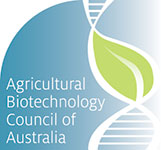CSIRO is seeking to undertake a field trial of genetically modified (GM) canola with increased abiotic stress tolerance.

These canola varieties achieve their stress tolerance through the introduction of a gene from yeast. CSIRO proposes to conduct the trials over five years on sites in New South Wales and South Australia, testing the GM canola plants under field conditions with and without irrigation.
Trigall Australia is seeking to undertake field trials of a GM wheat variety, known as HB4. HB4 wheat has demonstrated an increased tolerance to environmental stress, in particular drought conditions, and is approved for commercial cultivation in Argentina, Brazil and Paraguay. The wheat varieties achieve tolerance to water stress through the introduction of a gene from the sunflower.
This variety is expected to outperform conventional wheat varieties during unfavourable growing conditions, such as drought. Trigall Australia has applied to conduct the trials at 10 sites across NSW, SA, Victoria and Western Australia over five years.
Both the GM canola and HB4 wheat express traits likely to improve crop performance in stressful environments. Australian-based field trials would enable researchers to evaluate their effectiveness for Australian farms.
Applications to run these field trials have been recently put forward to the Office of the Gene Technology Regulator (OGTR). The OGTR is seeking comments on the Risk Assessment Risk Management Plans (RARMP) for both applications before a licence decision is made.
Golden Rice hits a hurdle
A GM biofortified rice developed to address global malnutrition is facing challenges getting into the hands of growers and consumers. This is despite field trials and regulatory approvals from numerous countries, including Australia, New Zealand, Canada and the US.
Golden Rice, also known as Malusog Rice, produces large amounts of beta-carotene, a nutrient not normally present in rice. This has been achieved by introducing two genes, one from maize and one from a common soil bacteria.
Beta-carotene, responsible for the bright red/orange colour in many fruits and vegetables and the ‘golden’ appearance of the rice, is converted by our bodies to vitamin A. Golden Rice was developed to address vitamin A deficiency (VAD), a major public health problem globally. According to the World Health Organization (WHO), VAD afflicts 250 million people worldwide, most of which are preschool children (190 million) and pregnant women (19 million).
The Philippines and Bangladesh were recommended for the rollout of Golden Rice due to significant VAD issues. According to the International Rice Research Institute (IRRI), VAD in the Philippines affects between 1.7 and 2 million children under the age of five, while in Bangladesh it affects 20 per cent of children under five.
Researchers estimate that in countries where rice is a staple of nearly every meal, Golden Rice could supply 30 to 50 per cent of the estimated average vitamin A requirement.
Work first started on the biofortified rice in 1982, with several iterations developed. In July 2021, the first Golden Rice cultivation biosafety permit was granted to allow commercial-scale cultivation in the Philippines. The Department of Agriculture Philippine Rice Research Institute (DA-PhilRice), in collaboration with IRRI and other partners, estimated that it would take three to four seasons to produce sufficient supply of seeds for commercial farm cultivation.
However, cultivation was interrupted in April 2023 when the Philippine Supreme Court ordered the propagation of Golden Rice be stopped following a petition filed by an opposing group. The petition claimed the GM rice posed risks to consumer and environmental health. The Supreme Court’s decision was upheld by the Court of Appeals in April this year.
In an official statement, Dr John C de Leon, DA-PhilRice’s executive director, said they were reviewing the implications to prepare a response.
The Agricultural Biotechnology Council of Australia is an industry initiative established to increase public awareness of, and encourage informed debate and decision-making about, gene technology.

























































